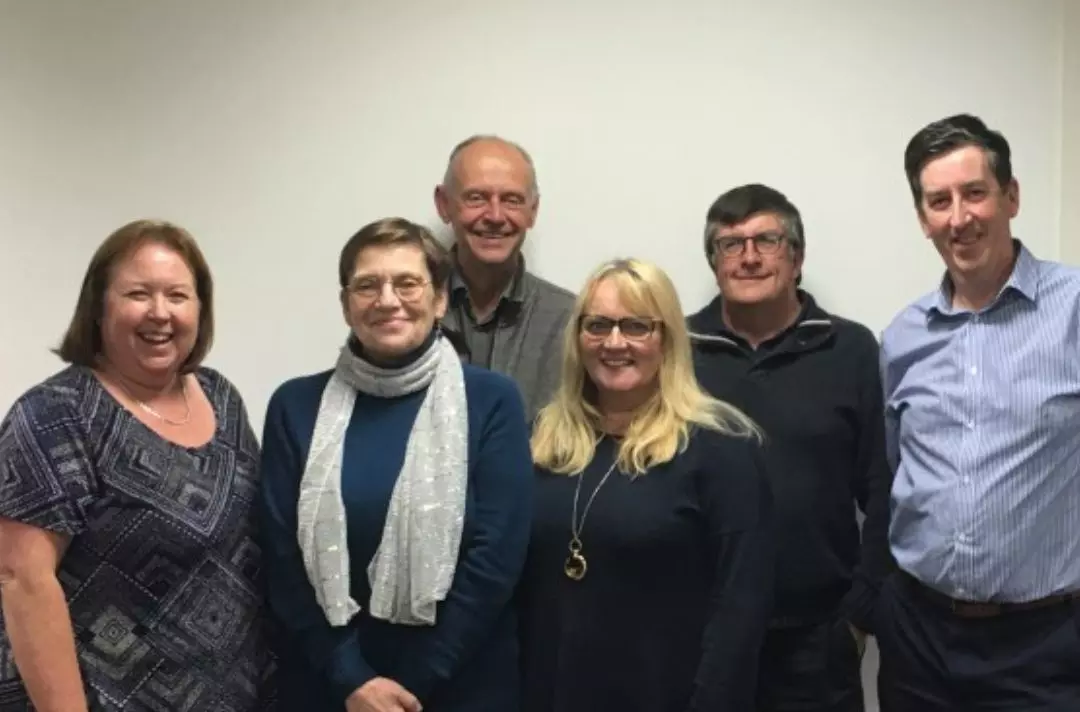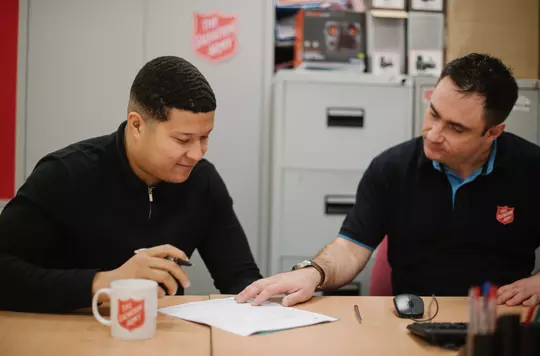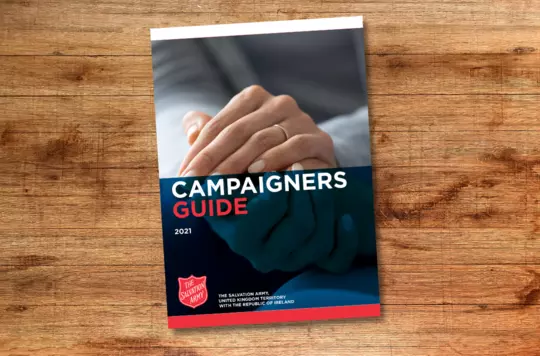2 November 2022
Tightening budgets: ‘We all need to look out for each other’
Debbie White

As people struggle with the increasing cost of living, debt adviser Debbie White shares her experience of helping people take control of their finances and offers four budgeting tips we could all consider.
Douglas Corps, on the Isle of Man, decided to open a debt advice centre when a review of its community support programme highlighted individuals returning each year for financial support. The centre opened in September 2020 as the Isle of Man came out of its first of three Covid-19 lockdowns.
Our team is one of the smaller debt advice centres in the territory, with three debt advisers currently managing £500k worth of debt. We don’t just provide advice about dealing with debt, we also help people with budgeting and provide specialist advice to clients about how they can maximise income and reduce expenditure.
Paul, one of the volunteers, said: ‘When I started volunteering, I expected it would all be about budgeting and occasionally I’d help people with other challenges. I quickly came to realise it’s more like 50-50 practical advice and pastoral support. The role is much more holistic than I expected.
‘It’s so important to meet people where they are and listen to them. I talked to a client about a storage unit that was costing a lot of money. To me it looked like a soft target for cutting costs, but for them it was full of things that gave meaning to their life. It’s up to the client to make decisions – you have to respect that.’
It’s great to see people grow. One client came to us with very low self-esteem and has visibly changed.
During a recent phone call, he said: ‘Oh yes, I went to the bank, cancelled the standing order and I rang and dealt with the other issue on a freephone number.’
I was so pleased for him that he had the confidence to take back control.
Very few people are chronic over-spenders. Some people are going along quite happily when they are hit by an event such as redundancy, illness or a relationship breakdown. While some people comfort-spend, others have underlying problems with mental health or addiction. For people with complex needs, providing budgeting advice is virtually useless unless they are also receiving support in other areas of their life.

This means that working with other organisations is essential. We have worked with social services – including safeguarding and mental health teams – an addiction charity, a food bank, a housing charity, bereavement counsellors and a family support charity.
‘We all need to look out for each other’
As budgets come under pressure, we all need to look out for each other, particularly those with limited income or poor mental health. More and more people are turning to The Salvation Army for help.
If you or someone you know are struggling, here are four things to consider:
1. Can your expenditure be reduced or certain expenses cut out?
Consider what expenses are priorities, such as housing and food shopping, and see if there are cheaper alternatives to essentials. Did you know LED light bulbs could save approximately £200 per year on an energy bill?
2. Can your income be increased?
Consider employment, reviewing benefit entitlement, or selling items you don’t need on eBay or Facebook Marketplace.
3. Are there tools you could try to help you budget?
MoneyHelper.org.uk, which is backed by the UK government, includes budgeting tools and planners. There’s also moneysavingexpert.com, which has lots of tips and resources.
4. Is specialist advice needed?
If your corps doesn’t have a debt advice service, contact thqdas@salvationarmy.org.uk for online support.
If someone has hit a life situation that could make money tight, don’t be afraid to ask how they are managing and repeat the question, as it’s automatic to say everything is OK when it isn’t.
Some people just need a sympathetic listener to give reassurance, but others may be existing on one bowl of cereal a day and need emergency assistance and signposting to specialist support.
If you can offer to pray with and for people, please do. We are often called on to do this and have corps members in our team who are available to meet with clients to talk. Sometimes they just go for a walk in the park or visit a coffee shop.
As we consider how we can help those around us, let’s remember these words from Jesus:
‘For I was hungry and you gave me something to eat, I was thirsty and you gave me something to drink, I was a stranger and you invited me in, I needed clothes and you clothed me, I was ill and you looked after me, I was in prison and you came to visit me… Truly I tell you, whatever you did for one of the least of these brothers and sisters of mine, you did for me’ (Matthew 25:35–40).
Written by

Debbie White
Debt Adviser
Discover more

Supporting people within our church and communities who find themselves burdened with debt.

Public Affairs Officer Chris Hartley introduces a new opportunity for Salvationists.

